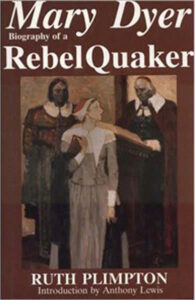 Mary was a notable Quaker minister and one of the first women to advocate for religious freedom in colonial America. Born in England, she emigrated to Massachusetts Bay Colony with her husband, William Dyer, in 1635.
Mary was a notable Quaker minister and one of the first women to advocate for religious freedom in colonial America. Born in England, she emigrated to Massachusetts Bay Colony with her husband, William Dyer, in 1635.
Initially a Puritan, Mary became influenced by the Quaker movement, which emphasized direct personal experience of God over rigid religious doctrine. Her conversion to Quakerism led to her becoming an outspoken advocate for the rights of Quakers, often at great personal risk.
Dyer’s commitment to her beliefs resulted in her being arrested multiple times for defying the Puritan authorities. The Puritan leaders in Massachusetts were intolerant of Quaker views, viewing them as a threat to their religious and political order. Defying banishment and facing imprisonment, Dyer continued to return to the colony to promote Quaker ideals. Dyer’s persistence in advocating for her faith ultimately led to her execution. On June 1, 1660, she was hanged in Boston, becoming a martyr for the cause of religious tolerance.
Mary Dyer was initially buried in an unmarked grave in Boston. In 1662, her remains were reburied in Rhode Island. Accounts vary as to the location.
Mary Dyer and William Dyer had eight children, six who survived into adulthood. Her descendants are numerous, including two Rhode Island governors.

